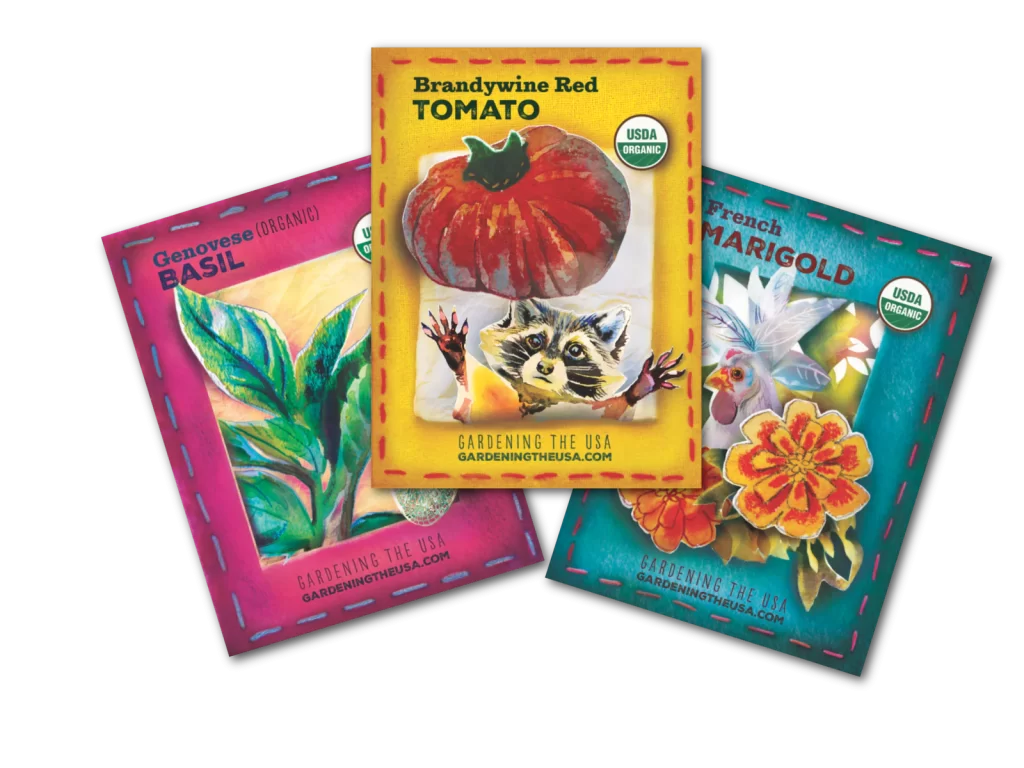
April is National Gardening Month! As spring blossoms across North Florida, gardeners in the Perry area are digging their hands into warming soil and preparing for the growing season ahead. This month-long celebration reminds us of the joy and importance of growing our own food and creating beautiful, productive landscapes.
Understanding Your Growing Zone
Perry, Florida recently changed from Zone 8b to Zone 9a according to the 2023 USDA Hardiness Zone Map, with average minimum temperatures between 20°F and 25°F. This shift reflects our gradually warming climate and opens up new planting possibilities for local gardeners. This change from the 2012 map means gardeners in Perry now have different options for what can thrive in their gardens.
North Florida experiences a humid subtropical climate with hot, wet summers and mild, cool winters. The region is blessed with plenty of sunshine, good rainfall, and a long growing season, allowing residents to grow an impressive variety of plants. Unlike South Florida, our area has two distinct growing seasons rather than one continuous season, making timing crucial for successful harvests.
April’s National Gardening Month: Perfect Timing for Perry Planting
This April’s National Gardening Month coincides perfectly with the prime spring planting period for North Florida. In the Perry area, April represents an exciting time when the soil has warmed and frost risk has diminished significantly:
Spring Planting (April Focus): April is an ideal time to plant a wide variety of crops in North Florida. This month you can confidently plant warm-season vegetables including tomatoes, peppers, eggplants, cucumbers, squash, beans, corn, and melons. It’s also your last chance to get in crops like beets, carrots, radishes, and Swiss chard before summer heat arrives. For herbs, now is perfect for basil, cilantro, dill, and other sun-loving varieties.
April gardening in Perry allows you to take full advantage of lengthening days and warming temperatures. By planting now, your garden gets established before the intense summer heat arrives, giving plants the best chance for productivity and resilience.
Celebrate National Gardening Month with Regenerative Practices
April’s National Gardening Month is the perfect time to implement regenerative gardening techniques that align with RetiredGardener.com‘s philosophy. Their approach recognizes that “regenerative is so multi-layered” – it means “to revive or to bring into existence again,” “to renew or restore,” and “to restore a substance to a favorable state.” This holistic view creates gardens that improve rather than deplete their surroundings.
The core of their approach is creating what they call a “closed loop system” where they “try not to bring anything into the ecosystem, or send anything out.” This perfectly captures the essence of regenerative gardening – creating self-sustaining systems that mimic nature’s own efficiency.
Here are key regenerative techniques perfectly timed for National Gardening Month in North Florida:
Building Healthy Soil: Florida’s naturally sandy soil benefits tremendously from organic amendments. Adding organic matter like compost improves nutrient retention and overall soil health in Florida’s quick-draining sandy soils. Start a compost pile with kitchen scraps, yard waste, and fallen leaves to create your own soil amendment.
Keeping Living Roots in the Soil: Keeping roots in the ground after harvest stores energy and nutrients in your soil for future plantings. This practice maintains soil structure and feeds beneficial soil organisms. Consider cutting plants at the soil line rather than pulling them when harvesting.
Cover Cropping: Between main plantings, grow cover crops like clover, buckwheat, or cowpeas to protect and enrich your soil. These plants prevent erosion, suppress weeds, add organic matter, and some even fix nitrogen from the air into the soil.
Composting In Place: The “chop and drop” method lets plant material decompose right where it grew. This technique provides “fertilization and soil production through heavy routine pruning” with materials decomposing exactly where nutrients are needed.
Water Management in North Florida
Water management is crucial in our climate, which can swing between heavy rainfall and dry spells:
Mulching: Apply a 2-3 inch layer of mulch around plants to retain moisture, suppress weeds, and gradually improve soil as it breaks down. Options include pine straw, leaves, straw, or partially decomposed wood chips.
Rain Harvesting: Set up rain barrels to capture water from roof downspouts. Using the land’s contour lines to catch and hold water through swale systems is another effective approach for larger properties.
Efficient Irrigation: Water deeply but infrequently to encourage deep root growth. Early morning watering reduces evaporation and disease risk. Consider drip irrigation or soaker hoses to deliver water directly to plants’ roots.

The Companion Planting Set 1, Tomato, Marigold, Basil
Companion planting is the practice of growing certain plants together to create a mutually beneficial relationship.
Why Choose RetiredGardener.com Seeds for National Gardening Month
As you plan your April planting to celebrate National Gardening Month, seed selection becomes a crucial decision. RetiredGardener.com stands out as a perfect partner for your North Florida garden with their commitment to regenerative principles.
They embraces true sustainability through regenerative practices that reflect their philosophy: “We’re about being sustainable, and to do that we need to be regenerative.” This multi-layered approach means reviving, restoring, and bringing new life to our gardens and the Earth. Their dedication to creating closed-loop systems where nothing comes in or goes out captures the essence of regenerative gardening.
Their focus on “saving seeds and adapting them to warmer climates and weather” is especially valuable for North Florida gardeners facing our changing climate conditions. By selecting seeds from them, you’re investing in varieties that have been carefully adapted over multiple generations to thrive in conditions like those in Perry and surrounding areas.
This National Gardening Month, consider that with each seed packet from RetiredGardener.com, you’re supporting a regenerative vision that improves soil health, promotes biodiversity, and creates resilient food systems.
National Gardening Month for Any Space: Even Small Patios
National Gardening Month isn’t just for those with large properties! As Retired Gardener notes, “it doesn’t matter if you have a really large place to plant or a small patio” – regenerative gardening techniques can be adapted to any space. Here are solutions for limited areas:
Container Gardening: Select containers at least 12 inches deep with drainage holes. Fill with quality potting mix and compost. Herbs, greens, peppers, and even determinate (bush) tomatoes grow well in containers.
Vertical Gardening: Utilize trellises, wall-mounted planters, or hanging baskets to maximize growing space. Vine plants like cucumbers, beans, and some squash varieties are particularly suited to vertical growth.
Intensive Planting: Square foot gardening or other intensive methods let you grow more in less space by carefully planning plant spacing and succession planting.
Celebrate National Gardening Month Through Community
National Gardening Month isn’t just about individual gardens but about building connections with fellow plant enthusiasts. This April, consider these community resources to enhance your regenerative gardening journey:
University of Florida Extension Service: The Taylor County Extension office often offers special workshops during April’s National Gardening Month. They provide soil testing, research-based advice, and Master Gardener programs specifically tailored to North Florida conditions.
Local Garden Clubs: Many garden clubs organize special events, plant swaps, and garden tours during National Gardening Month. Join these groups to share knowledge and experiences with fellow gardeners who understand Perry’s unique growing environment.
Farmers Markets: April brings the spring season to nearby Farmers Market, making it an excellent time to connect with local growers who practice regenerative methods. These connections help build resilient food systems.
Online Communities: Connect with RetiredGardener.com and other regenerative gardening communities to share your National Gardening Month projects and learn from others implementing similar practices in comparable climates.
Make This April’s National Gardening Month Your Regenerative Beginning
As we celebrate National Gardening Month this April, there’s no better time to embrace regenerative gardening practices in North Florida.
National Gardening Month reminds us that our gardening choices impact more than just our harvest – they affect our local ecosystems, water quality, and climate resilience.



Leave a Reply